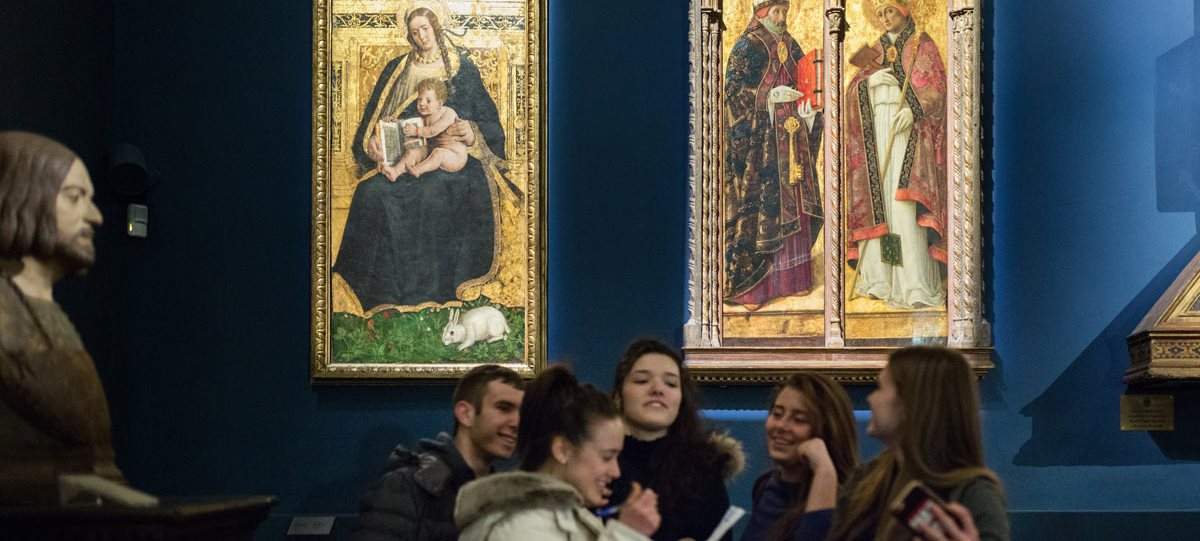For a return to community and beauty. Restarting with culture and trust in youth
The history of Italy teaches that after a collective negative event, it is customary to start again in community. Together. With courage, resourcefulness, a desire to prove that evil has not brought us down. That we are ready and able to rise again. Looking into each other’s eyes again, at each other, to instill courage, solidarity, strength, conviction. To feel alive.
This experience is today, again, absolutely essential. After all, after more than sixty days of confinement in which we have witnessed, in sociological terms, an exponential spread of negative emotions (fear, sadness, sorrow), it is essential to return to see each other in person and rediscover our practical activities to generate and spread the positive emotions mentioned above. The resilience of society depends on it.
After a crisis such as the current one, history magistra vitae teaches that we start over with a greater focus on two main elements: community and the environment. In the first case, it is a matter of becoming aware of the social, friendship and professional networks on which previously, especially in medium and large cities, we did not rely much, caught as we were by anirrefrainable globalization (which has turned even our emotions into commodities). The two months of confinement allowed many a chance to stop and think. To look inward. Take stock of their own existence. To try to imagine a new future. In this sense, attention to the environment can play a preponderant role in building a (new) future.
 |
| Young people at the Bardini Museum in Florence. Ph. Credit Mus.e Florence |
For several more months, in fact, it will be very difficult to return to travel with the frequency characteristic of the pre-epidemic (especially abroad). So there will be the possibility of rediscovering local territories, treasure troves of art enclosed just a few kilometers from one’s home, which were perhaps previously ignored in favor of extra-regional or national tourist consumerism. Thus, a return to nature could occur generated by a need to slow down one’s habits, also linked to the existential impulse to find the other physically. I am thinking in particular of young people or single people who have spent more than sixty days in solitude. There is a need to come together again, to perceive each other, to smell each other. And there is the right to find love again. As Antigone said, I was not born for lodio, but for lamore. We are human and social beings. Encounter with the other and love for the other are our existential oxygen.
This gives rise to two reflections inherent in the role of young people and the role of culture: 1) Young people are our future. Not having confidence in their behavior would be the first step to killing the future. To give reason to those prophets of doom who in recent weeks are rushing to make gloomy predictions about a society that would become more and more embittered, violent, savage. I am very sorry to hear such predictions. I would like to see today’s phenomena of video addiction and individual protagonism replaced by thoughtfulness, reflexivity, civil calm, and hope. Let us give confidence to young people; we will not be betrayed. This may be the historic moment to modernize our society, to give young people roles of responsibility, trust, institutional spaces and power. 2) The role of culture is crucial in times of collective crisis. This is why, for example, bookstores and museums should not be closed. Never. Because they are the places that help not to lose historical memory. To understand how to come out of difficulties. To not be overwhelmed by fake news. Because they are spaces for spreading beauty. Which precisely in times like these can help us save the world.
Warning: the translation into English of the original Italian article was created using automatic tools. We undertake to review all articles, but we do not guarantee the total absence of inaccuracies in the translation due to the program. You can find the original by clicking on the ITA button. If you find any mistake,please contact us.





























